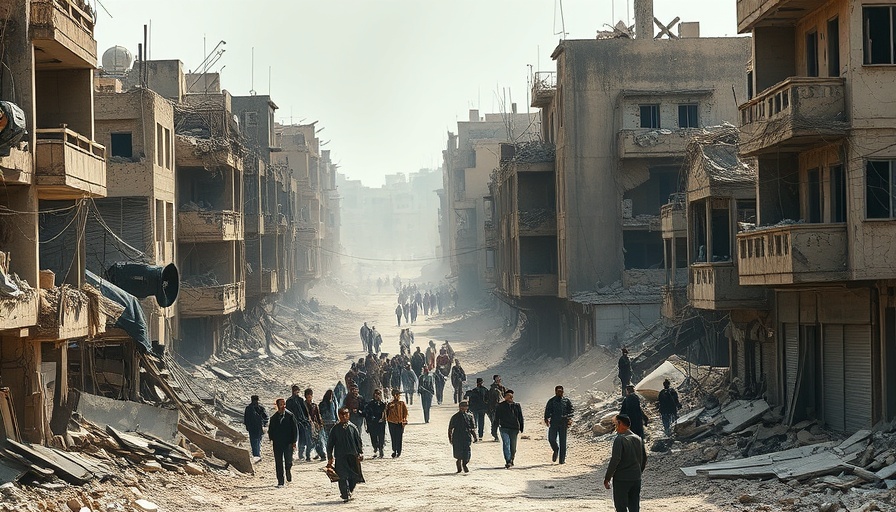
Conflict in Leadership: A Critical Examination
In recent weeks, Israel's political landscape has been marred by indecision and conflicting priorities. The Israeli government, led by Prime Minister Benjamin Netanyahu, has found itself in a precarious position, attempting to manage the pressures from far-right political allies while navigating the realities of military strategy. The recent shift in humanitarian aid policy highlights how divided the leadership is, with the Prime Minister enabling the passage of aid into Gaza even as military action remains on the table.
The Tug-of-War Over Gaza Aid
The decision to allow aid into Gaza after a two-month blockade is a significant shift in policy for Netanyahu's administration. It appears that international pressure, particularly from allies like the Trump administration, played a role in this decision, as fears mounted about potential humanitarian crises within the Palestinian territories. Paradoxically, this move aligns with the government's broader objectives of pressuring Hamas while trying to avoid accusations of exacerbating the already dire humanitarian situation.
Military Strategies: Between Action and Inaction
While the Israeli military has ramped up airstrikes in Gaza, the anticipated ground offensive remains conspicuously absent. The generals are reluctant to commit to a full-scale invasion, citing concerns about long-term sustainability and potential backlash from reservists who might be hesitant to engage in a prolonged conflict. This hesitation underscores the complexities of military engagement in Gaza, where hostages reportedly held by Hamas complicate the calculus of any decisive action.
The Role of Far-Right Politics
Netanyahu's far-right political allies are pushing for a stronger military presence in Gaza, advocating for reoccupation as a means to resolve the ongoing conflict with Hamas. This stance brings its own set of challenges, as many in Israel's military leadership fear that a full reoccupation could ignite further resistance and deepen the cycle of violence. The division within the government creates an environment where decisive action is difficult to achieve, leaving the country in a state of political and military limbo.
Public Sentiment and Reaction
Across Israel and the occupied territories, public sentiment is increasingly shaped by these governmental decisions. Many Israelis express frustration at the indecision, desiring a clear strategy that aligns with both security needs and humanitarian considerations. Polls indicate that a significant portion of the population is weary of prolonged conflict and desires solutions over military actions.
The Broader Implications for Israel and Gaza
The ongoing muddled strategy over Gaza not only affects Israelis and Palestinians but has regional and global implications as well. The balance of power in the Middle East hangs in the balance, with neighboring countries observing Israel's actions closely. International reactions to Israel's treatment of Gaza could potentially influence diplomatic relations and future alliances. The uncertainty surrounding Gaza may well determine not only Israel's internal dynamics but also its standing in the international community.
A Future of Continued Conflict?
As the situation unfolds, many are left wondering what the future holds for Gaza and Israel. The intense focus on military strategy versus humanitarian needs suggests that without a significant recalibration of priorities, the conflict may become deeper and more complicated. A sustainable solution will require introspection from Israel’s leadership as well as a willingness to engage constructively with Palestinian concerns.
Ultimately, while temporary agreements may ease immediate tensions, a comprehensive approach addressing the root causes of conflict will be essential. Only time will tell whether Netanyahu’s administration will rise to meet the challenges posed by both his allies and the ongoing humanitarian crises in Gaza.
 Add Row
Add Row  Add
Add 




 Add Row
Add Row  Add
Add 

Write A Comment